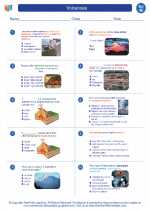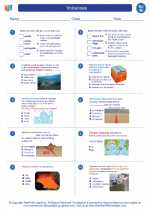Potassium
Potassium is a chemical element with the symbol K and atomic number 19. It is a silvery-white metal that is soft enough to be cut with a knife. Potassium is an essential mineral that plays a key role in many bodily functions including muscle contractions, fluid balance, and nerve signals. It is also important for maintaining healthy blood pressure levels and proper heart function.
Properties of Potassium
Potassium is highly reactive and must be stored under oil or in an inert atmosphere. It is a good conductor of electricity and heat, and has a low density compared to many other metals. Potassium readily forms compounds with other elements, and is an essential nutrient for plant growth.
Uses of Potassium
- As a fertilizer in the form of potash
- In the production of soaps and detergents
- In certain types of glass and ceramics
- In various industrial processes such as in the production of aluminum
- In the human body for maintaining proper physiological function
Study Guide for Potassium
- What is the chemical symbol for potassium?
- What is the atomic number of potassium?
- What are the key roles of potassium in the human body?
- Why is potassium stored under oil or in an inert atmosphere?
- What are the main uses of potassium?
The chemical symbol for potassium is K.
The atomic number of potassium is 19.
Potassium plays a key role in muscle contractions, fluid balance, nerve signals, maintaining healthy blood pressure levels, and proper heart function.
Because potassium is highly reactive and can react vigorously with air and water, it must be stored under oil or in an inert atmosphere to prevent it from reacting.
Potassium is used as a fertilizer in the form of potash, in the production of soaps and detergents, in certain types of glass and ceramics, in various industrial processes, and in the human body for maintaining proper physiological function.
◂Science Worksheets and Study Guides Eighth Grade. Volcanoes

 Worksheet/Answer key
Worksheet/Answer key
 Worksheet/Answer key
Worksheet/Answer key
 Vocabulary/Answer key
Vocabulary/Answer key
 Vocabulary/Answer key
Vocabulary/Answer key
 Vocabulary/Answer key
Vocabulary/Answer key
